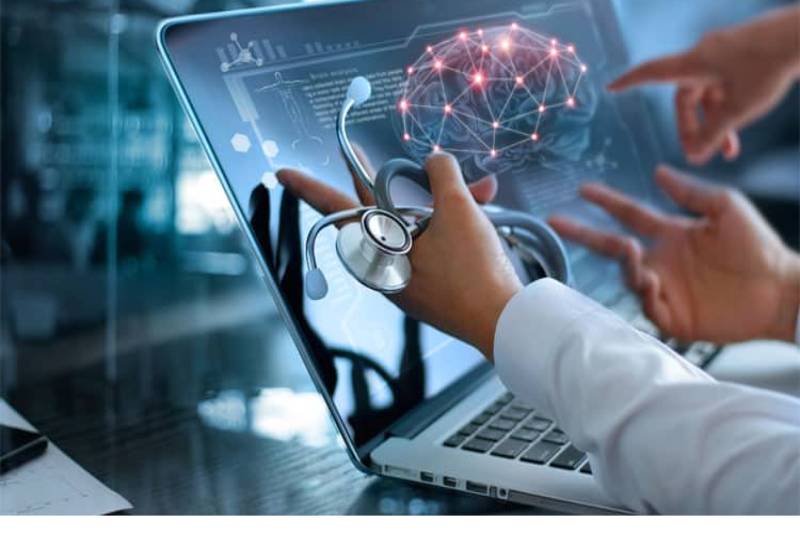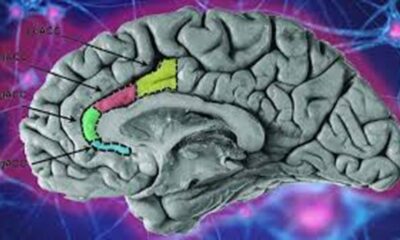The way physicians identify and treat disease is about to undergo a radical change because to artificial intelligence (AI). It may be especially beneficial for depression, as it may lead to more precise diagnosis and identify the most effective therapy.
Twenty percent of us will experience depression at some point in our lives. 300 million individuals worldwide suffer from depression at any given time, with 1.5 million Australians most likely to be among them.
For this reason, depression has been identified by the World Health Organization as the primary cause of illness worldwide.
Then, how precisely may AI be useful?
It can be difficult to recognize depression
Even though it occurs frequently, depression is challenging to identify. It’s so challenging, in fact, that less than half of cases of depression are correctly diagnosed by general practitioners.
This is due to the lack of a single test for depression; instead, physicians diagnose patients based on their own self-reported symptoms, questionnaires, and clinical observations. However, not everyone experiences the same symptoms of depression.
While some people may feel depressed or agitated, others may sleep more or less; some people may lack energy and enthusiasm in activities.
There are several treatment options available for individuals with a proper diagnosis of depression, such as talk therapy, medication, and lifestyle modification. However, each person responds to treatment differently, so we are unable to predict in advance which treatments will be effective and which will not.
Artificial Intelligence (AI) teaches computers to think like people, focusing on three human-like behaviors: learning, reasoning, and self-correction (the ability to adjust and do better at something over time).
Machine learning is one area of artificial intelligence that aims to teach computers to learn, recognize patterns in data, and make predictions based on that data without the need for human intervention.
Research on using AI to treat diseases like depression, which may be challenging to identify and treat, has increased dramatically in recent years.
What has been discovered so far
With unexpected results, scientists compared the diagnoses and treatment recommendations made by ChatGPT with those of actual doctors. ChatGPT primarily suggested talk treatment when provided data on fictitious patients with varying levels of depression severity, sex, and socioeconomic background. Doctors, on the other hand, suggested antidepressants.
Guidelines from the US, UK, and Australia suggest talk therapy as a first line of treatment before medication.
This implies that ChatGPT might adhere to clinical recommendations more frequently than GPs, who might have a propensity to overprescribe antidepressants.
whereas physicians, particularly those who work in blue-collar industries, are statistically more likely to prescribe antidepressants to males.
The effects of depression on the brain
Certain areas of the brain are affected by depression. My studies have demonstrated that the brain regions impacted by depression are strikingly consistent among individuals. So much so that by only examining these brain areas on MRI scans, we can determine with over 80% accuracy whether or not a person has depression.
This result has been corroborated by additional studies employing sophisticated AI models, indicating that brain anatomy could be a useful avenue for AI-based diagnosis.
More than 80% of the time, studies that use data from magnetic resonance imaging (MRI) to examine brain function at rest can also accurately predict depression.
The greatest accuracy, however, comes from combining structural and functional information from MRIs; in more than 93% of cases, this information accurately predicts depression. This shows that the most practical approach may be to use a variety of brain imaging modalities to help AI identify sadness.
AI technologies based on MRI scans are now only employed in research. However, it’s possible that this kind of technology will soon be a part of your doctor’s toolset, assisting them in improving diagnosis and patient care as MRI scans become more affordable, quicker, and portable.
Even if MRI-based AI applications show promise, there might perhaps be a more straightforward and easy way to identify sadness.
Researchers are looking at whether wearable technology, such as smart watches, might identify and forecast depression. Due to their ability to gather a multitude of data, such as heart rate, step counts, metabolic rate, sleep patterns, and social interactions, smart watches are particularly useful.
According to a recent evaluation of all research conducted on wearables and depression assessment, depression was correctly predicted 70–89% of the time. According to this research, wearable devices—which are worn constantly and are widely used—may be able to offer distinct data that would be difficult to get in other circumstances.
However, there are also disadvantages, such as the high price of smart devices, which may prevent many people from owning them. The lack of diversity in study groups and the questionable capacity of smart gadgets to identify biological data in individuals of color are two more.
Social media has also been used in studies to identify depression. Scientists have used artificial intelligence (AI) to predict the existence and severity of sadness based on the language used in our social media postings and community memberships.
In both Arabic and English, the precise words that were chosen had up to 90% success rates in predicting depression. The early stages of depression have also been successfully identified by analyzing the emojis people use.
Anticipating treatment outcomes
Numerous studies have shown that with only electronic health records, it is possible to predict the response to antidepressant medication with over 70% accuracy. This could give medical professionals more precise data to work with when recommending medication-based therapies.
Scientists have forecasted whether taking medication may help certain individuals go into remission from depression by combining data from participants in antidepressant studies.
AI has great potential for diagnosing and treating depression, but before it can be used as a diagnostic tool, recent findings need to be validated. In the meanwhile, wearable technology, social media, and MRI scans may help medical professionals identify and treat depression.

 Diabetology2 weeks ago
Diabetology2 weeks ago
 Diabetology2 weeks ago
Diabetology2 weeks ago
 Diabetology1 week ago
Diabetology1 week ago
 Diabetology1 week ago
Diabetology1 week ago
 Diabetology1 week ago
Diabetology1 week ago
 Diabetology2 weeks ago
Diabetology2 weeks ago
 Diabetology1 week ago
Diabetology1 week ago
 Diabetology2 weeks ago
Diabetology2 weeks ago


















